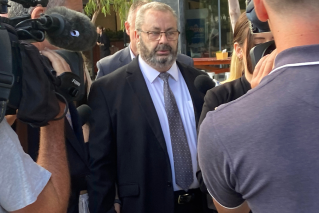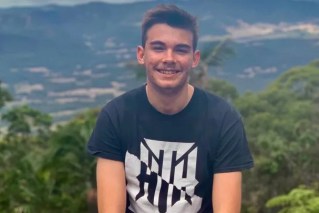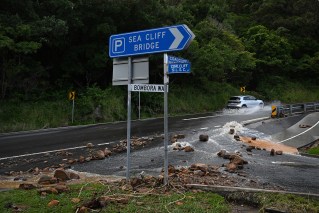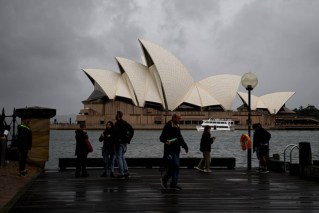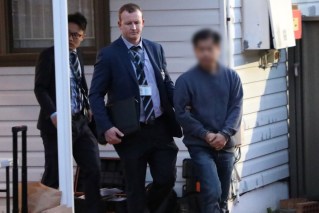Manslaughter verdict for killer of Angry Anderson’s son
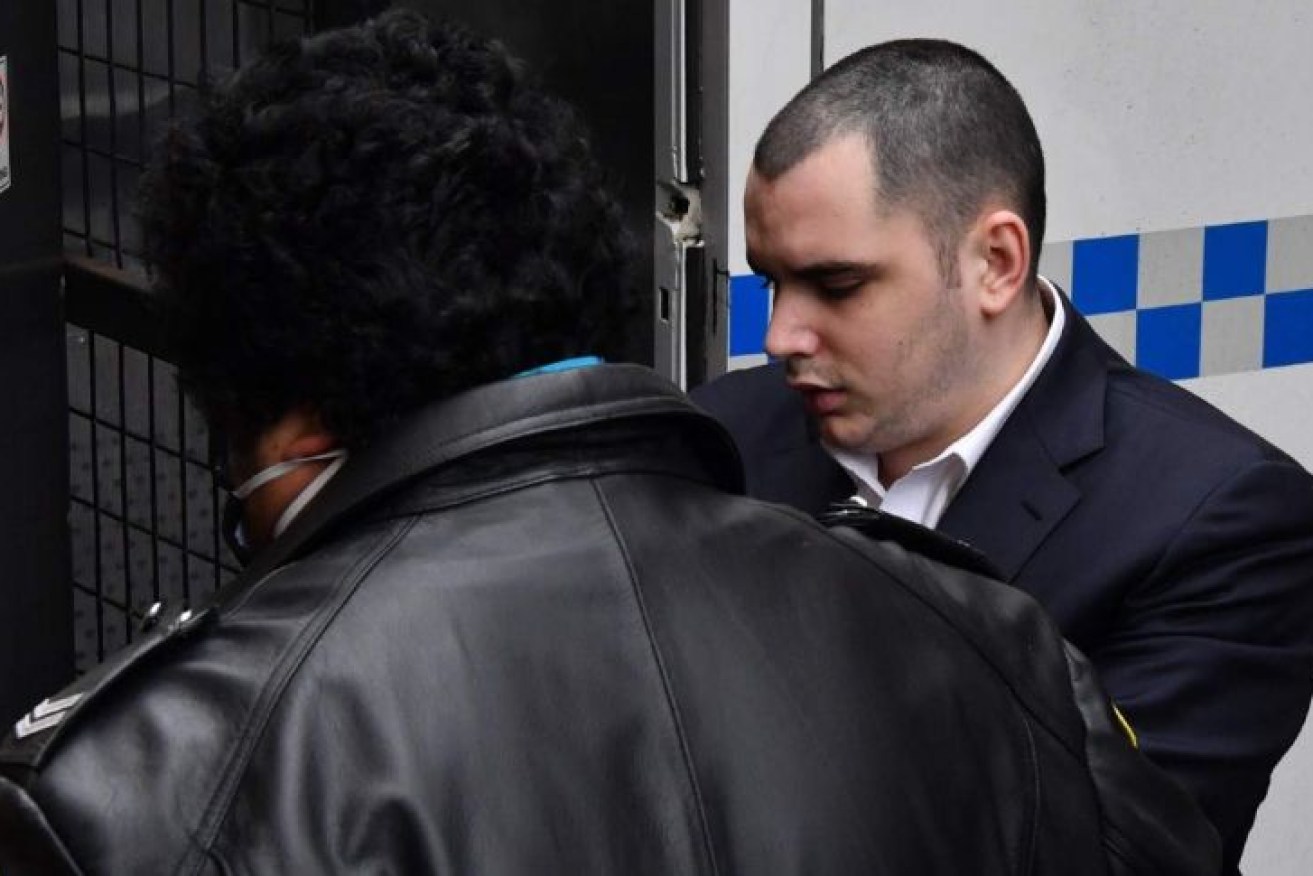
Mathew Flame was accused of murdering Liam Anderson, the son of rocker Angry Anderson. Photo: AAP
A Sydney man who fatally bashed Rose Tattoo rocker Angry Anderson’s son while high on ecstasy has been found not guilty of murder but guilty of manslaughter.
Mathew Flame, now 22, told police he “lost his mind” and was possessed by “some form of entity” after partying in Darlinghurst with his close friend Liam Anderson in November 2018.
During a trial in the NSW Supreme Court, jurors heard he took up to 10 MDMA pills that night – in addition to drinking alcohol and smoking cannabis – before they ended up alone in a park at Queenscliff, on the northern beaches.
There, the apprentice plumber was seen “stomping” on Mr Anderson’s head and claimed he was hallucinating that his friend was a demon who wanted him dead.

Rock legend Angry Anderson and his youngest son Liam. Photo: Facebook
It was not disputed that Flame’s ferocious attack killed Mr Anderson, but his defence team argued he was not criminally responsible due to a disease of the mind – schizophrenia.
It took a jury just over two full days to acquit Flame of murder but find him guilty of manslaughter on Thursday.
Flame briefly closed his eyes as he learned his fate.
From the public gallery, his mother began quietly weeping.
When Justice Richard Button had left the bench, Flame hugged his mother from the dock and apologised.
“Don’t ever be sorry,” she replied through tears.
Liam Anderson’s mother, Lindy, also hugged Flame before he was led away.
When he was arrested, Flame ranted to officers about Satan.
During the three-week trial, the court was shown a video of Flame sitting in a cell hours after Mr Anderson’s death, in which he spoke calmly and frankly about his night.
“No one’s going to believe me … it was so real,” he told an officer.
“He became a demon and apparently he was really angry with me … and it wanted me dead.
“It was real f—ing dark s–t.”
Flame did not realise he had killed his friend.
Crown Prosecutor Gareth Christofi told the jury Flame experienced a drug-induced psychosis as a result of his own decision to take illicit substances.
Flame’s barrister, John Stratton SC, argued his client’s schizophrenia was already present and contributed substantially to the psychosis, even though the effect of the drugs may have played some part.
Mr Christofi highlighted evidence from a psychiatrist, Dr David Greenberg, who believed there was no sign of underlying mental illness prior to the night of the attack.
But a second psychiatrist, Dr Kerri Eagle, told the court the drugs Flame took were a “trigger” for an illness which was already there.
Dr Stephen Allnutt, a third psychiatrist who gave evidence, believed the drugs “unmasked” a condition and that Flame would, in all likelihood, not have become psychotic without them.
American tourist Trevor Buchert, who called triple-0 after seeing the attack during an early-morning walk, recalled the expressionless Flame looked up briefly when challenged, before continuing the bashing.
Mr Buchert said Liam Anderson turned his bloodied head towards him and repeatedly yelled: “Help me”.

Liam Anderson’s mother Lindy leaves court after the verdict on Thursday. Photo: AAP
Jurors heard Flame first started taking MDMA at music festivals when he was 15 and his intake gradually increased through his teenage years, while occasionally using cocaine and heroin.
He admitted to Dr Eagle that he “went overboard” with MDMA on the night of the attack.
Speaking to Dr Greenberg, Flame recalled an incident four months before Mr Anderson’s death in which he experienced similar demonic hallucinations.
The court heard Flame went to work while still high from the eight MDMA capsules he took the previous night.
At a construction site, he recalled fearing his colleagues were demons, feeling “scared and anxious” and driving home.
The court heard since Flame has been in custody, he has abused intravenous buprenorphine and suffered two “seizure-like” episodes.
He initially denied drug use despite nurses noting track marks on his arm.
In September 2019 he also lied about hearing voices to be moved into a different cell, according to Justice Health records cited in court.
Outside court, Flame’s lawyer Leonie Gittani said her client was emotional but there was a sense of relief.
“It’s been a tough journey for him and a tough journey for everyone,” she said.
Asked if she thought he would get the treatment he needs in prison, she replied: “We hope so.”

